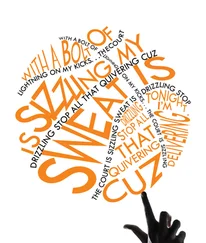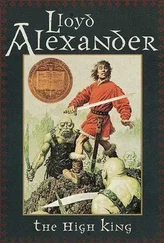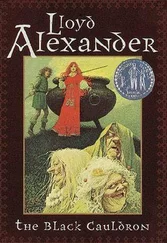“You’re very persuasive,” I said. “Thank you for asking. Of course I will.”
In reality, all I was thinking about was how to murder Hitler. How ironic it would be to kill him on his wedding day, the “happiest day” of his life. But how would I do it? It would take much more planning than just thinking about it. And what to do with Eva? Kill her, too? No. There would be no need. Once Hitler was dead the remaining members of the Reich would spring into action. The SS would come for me and I would be gone soon after. In a way, I felt sorry for Eva for being such a fool. I could see how she drew people to her with her kind dispensations, her invitations to celebrate life in the midst of war. Men and women were flattered to be part of her social circle, to perhaps get close to Hitler; however, her experience must have been as shallow and hollow as having tea in the sun on the Berghof terrace. I was convinced she knew nothing of the massacres, the concentration camps, the atrocities committed by the Reich. She was not stupid. Her greatest fault was that she was blind to everything except her own perception of life.
I took three of the dresses—two black and one dark blue—and said good night. Eva accompanied me to the staircase and the SS checkpoint that led back to the Vorbunker. Before we reached it, she looked back in the direction of her room. “Poor, poor Adolf,” she said. “They’ve all deserted him. He’s all alone now. He only has Blondi and me.”
I thanked her for the dresses and left her in the passageway. On the way to my room, a woman wearing an expensive silk dress appeared in the corridor. Three young girls dressed in a similar fashion accompanied her. They stared at me as if I were a specter. I must have looked a fright in my surgical gown, unkempt hair and plain face. Later, I asked Cook who they were. “Don’t you know?” she asked with astonishment. “That’s Magda Goebbels and her children. They’re here to ride out the storm.” Her husband, the Propaganda Minister, was also in the bunker, but I hadn’t seen him. Cook told me that a few days earlier he had read a proclamation of his allegiance to the residents of Berlin. A printed copy of it lay on a kitchen table. I picked it up:
I call on you to fight for your city. Fight with everything you have got, for the sake of your wives and your children, your mothers and your parents. Your arms are defending everything we have ever held dear, and all the generations that will come after us. Be proud and courageous! Be inventive and cunning! Your leader is amongst you. He and his colleagues will remain in your midst. His wife and children are here as well. He, who once captured the city with 200 men, will now use every means to galvanize the defense of the capital. The battle for Berlin must become the signal for the whole nation to rise up in battle.
The madness had descended deep into the earth.
One evening I asked Cook what day it was. She told me April 28. I had no idea how to tell time other than by asking people. There were no clocks or calendars on the walls. The hours in the bunker vanished in a monotonous litany. I’d left my wristwatch and suitcase in Irmigard’s apartment after the attack. I thought of her family and wondered whether they were alive. I prayed that they were.
Here, all six of Goebbels’s children, five girls and a boy, were in the bunker. The whole family had been personally invited by Hitler. Since my first spotting, I had come to notice them more often. They seemed a game lot, and stood out from the crowd of usual officers and staff. The eldest daughter appeared more reserved and sulky than the rest. I assumed she missed her freedom and her friends because she was older. Life inside the bunker was less of a game for her than for the younger children.
That evening, the Goebbels boy wandered by me in the corridor. From his appearance, I judged him to be about eight or nine years old. His hair was darker than his sisters’ and I spotted the resemblance to his father, particularly in his thin lips. He was growing into a lean young man, although he still carried some childhood softness around his belly. He brandished a wooden revolver at me and asked me where I was going. He was pretending to be a soldier, but his severe tone undercut the playfulness of the game.
“Who are you?” I asked, knowing all along.
“I asked you first,” he said. “Do you have your identification papers?”
“You only have to ask the Führer. He will tell you who I am.”
His eyes widened and he holstered his gun. “You’re a friend of Uncle Adolf?”
I would never claim that I was Hitler’s friend, so I answered, “I work for him.”
His shoulders drooped. “Everyone works for Uncle Adolf. I have no chance to catch spies or traitors. Did you see the man they dragged in today?”
I squatted against the wall to be closer to his face. “No, who was he?”
“Eva Braun’s brother-in-law,” he said proudly. “He worked for Uncle Adolf, too, but they demoted him. He was drunk. Maybe they’ll shoot him.” He smiled.
I’d heard that Eva had a sister and that she was married, but I knew nothing more about the man. I pointed to his toy weapon. “Where did you get your gun?”
He took the painted replica out of the holster and handed it to me. “I’m Helmut Goebbels and my father gave it to me. He ordered me to protect my mother and sisters while he works with Uncle Adolf. My father is very important.”
I looked at the realistic ridges on the grip, the sight, the trigger of the replica. I handed it back to him and said, “You’re doing a good job for your father.” Then, it struck me that I might ask him an “innocent” question of importance. “Are there other guns like yours in the bunker?”
His eyes narrowed and I wondered whether I’d given myself away. “Well… because you work for Uncle Adolf, I guess I can tell you.”
The walls rocked from a muffled explosion. They’d become more prominent within the past day. When I had first arrived at the bunker, I’d heard nothing. The Russians were only a few blocks away from the Chancellery now and the shelling was constant. Helmut looked to the ceiling and the teetering lightbulb overhead.
“My mother says the Red Army is coming. It makes her sick to her stomach. She tells my sisters that we may have to leave the bunker soon. That makes them happy, especially my oldest sister. She wants to go home, but I know my mother will never leave Uncle Adolf.” He patted the gun at his side. “This doesn’t shoot bullets, but my father said he would give me a real gun if I needed one.”
Another shell shook the walls. They were dropping on the Old Chancellery over our heads.
Helmut continued, oblivious to the artillery. “I’ll have a gun. Ever since the traitors tried to kill Uncle Adolf, he doesn’t allow guns around him. Only a few SS men have them. He knows they are loyal.”
I could have questioned his naïve assertion that Hitler’s staff was unwavering in their loyalty, but I left it alone.
Down the corridor, near the stairs that led downward to Hitler’s bunker, a stooped figure shambled by like a hunchback. Helmut saw him, too, shouted his name and darted after him without another word to me.
The figure stopped and turned. I gasped, looking into the face of evil. He’d aged a lifetime since I had seen him. His shirt was falling out from the waist of his pants. His hair shone gray in the dim light, his face lined with dark ridges. He stopped, turned his head toward me and stared. The light in his eyes had vanished. His left arm shook. He didn’t raise a hand or smile in acknowledgment. I wondered if he could see me at all.
His grotesque face terrified me. I wondered if I really needed to kill him, because, in actuality, he was already dead, a walking corpse holding court in his tomb. He grabbed Helmut’s shoulders and ambled away, using the boy like a cane.
Читать дальше












